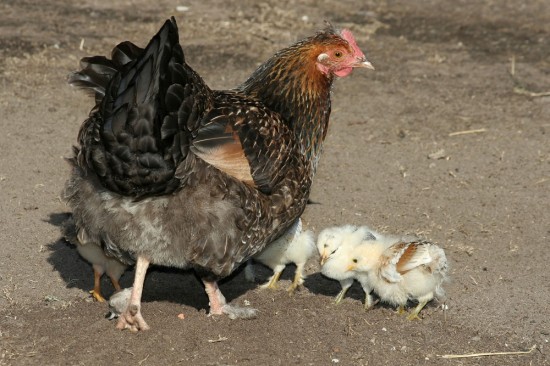
There are several different myths that have evolved over time about feeding dogs. Some have a basis of fact while others are simply a combination of misinformation and perhaps a bit of folklore and urban legend. However these myths came about it is important for dog owners to be able to determine fact from fiction and choose the healthiest option for their dog.
Myth 1. All human food is bad for dogs
Some people have very literally taken the "don't feed dogs table scraps" wisdom and created a much bigger issue. In fact some human food or table scraps may be very good for your dogs and provide additional opportunities for the dog to get vitamins and minerals as well as protein. The good types of human food include steamed or raw veggies without salt or seasoning, raw fruits, small amounts of whole grains such as brown rice and oatmeal as well as lean meats that are broiled, baked or boiled. Avoid feeding dogs any salty, sweet or processed foods or any foods that are spicy or hot.
Myth 2. Dogs can't have poultry bones
Dogs should never, ever have cooked poultry bones, but raw poultry bones are just fine for your dog. The best option is the neck and backbone, avoid the thin bones of the wings and the ribcage. Feeding raw poultry, even giving the dogs the whole carcass is not uncommon in BARF diets and feeding programs. The same is true for turkey or duck bones, just be careful to never give cooked bones and remove any thin or easily splintered types of bones prior to giving the meat to the dog.
Myth 3. Never feed your dog pork
Dogs should not eat raw pork but pork that is broiled or baked without seasoning that has the fat removed and the bones taken out is fine to feed your dog. In addition those that feed raw food diets recommend freezing pork bones for at least three weeks before feeding to avoid any risk of Trichinosis, a parasite that is very rarely found in pork. By freezing the bones or meat for three weeks the parasite will die and there is no risk at all.
Myth 4. Dogs can't have any dairy products
Most dogs can tolerate small amounts of dairy products, especially those that are low in lactose. Dogs should not be fed large quantities of milk, cheese, butter, ice cream, cream or half and half but most dogs can eat small amounts of plain yogurt and cottage cheese. Yogurt in particular can be a good source of Probiotics that help regulated the digestive tract. It is important to feed low fat and low sodium types of cottage cheese and only unflavored low fat yogurt.
Myth 5. Dogs should never change food
There is no need to feed a variety of different brands and types of food to your dog provided you are feeding a high quality food. However, there is also no risk or danger involved in switching your dog to another brand that is better or more suited to your dog. You don't need to change brands to give your dog a new taste as most dogs will do very well with the same nutritionally balanced food all their lives.
 Regular Shih Tzu Grooming Prevents Health Problems For The Breed
Regular Shih Tzu Grooming Prevents Health Problems For The
Regular Shih Tzu Grooming Prevents Health Problems For The Breed
Regular Shih Tzu Grooming Prevents Health Problems For The
 Is A Doberman Pinscher The Right Dog For You?
Is A Doberman Pin
Is A Doberman Pinscher The Right Dog For You?
Is A Doberman Pin
 Ten Tips For Keeping Your Dog Calm And Comfortable On New Year’s Eve
Ten Tips For Keep
Ten Tips For Keeping Your Dog Calm And Comfortable On New Year’s Eve
Ten Tips For Keep
 Old English Sheepdog Hereditary Health And Health Testing
Old English Sheep
Old English Sheepdog Hereditary Health And Health Testing
Old English Sheep
 How To Create A Safe Environment Hens With Chicks
How To Create A S
How To Create A Safe Environment Hens With Chicks
How To Create A S
Copyright © 2005-2016 Pet Information All Rights Reserved
Contact us: www162date@outlook.com